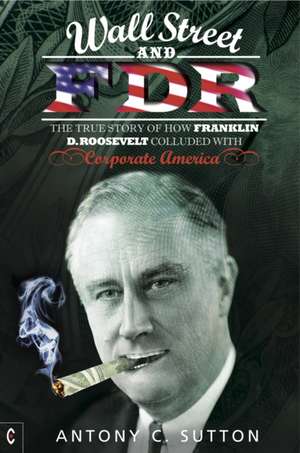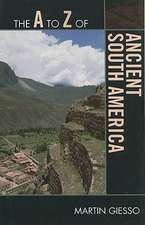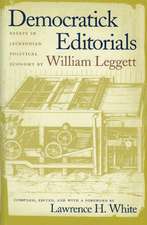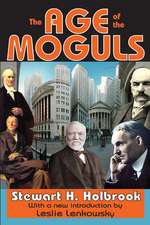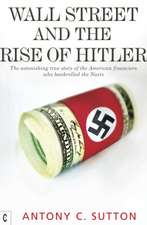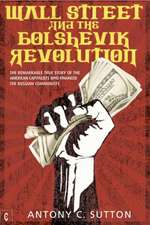Wall Street and FDR
Autor Antony C. Suttonen Limba Engleză Paperback – 31 dec 2013
Preț: 83.34 lei
Nou
Puncte Express: 125
Preț estimativ în valută:
15.95€ • 16.65$ • 13.20£
15.95€ • 16.65$ • 13.20£
Carte disponibilă
Livrare economică 14-28 martie
Livrare express 28 februarie-06 martie pentru 24.57 lei
Preluare comenzi: 021 569.72.76
Specificații
ISBN-13: 9781905570713
ISBN-10: 1905570716
Pagini: 200
Ilustrații: Illustrations
Dimensiuni: 156 x 236 x 17 mm
Greutate: 0.35 kg
Ediția:New edition.
Editura: CLAIRVIEW BOOKS
Colecția Clairview Books
Locul publicării:United Kingdom
ISBN-10: 1905570716
Pagini: 200
Ilustrații: Illustrations
Dimensiuni: 156 x 236 x 17 mm
Greutate: 0.35 kg
Ediția:New edition.
Editura: CLAIRVIEW BOOKS
Colecția Clairview Books
Locul publicării:United Kingdom
Descriere
Franklin D. Roosevelt is frequently described as one of the greatest presidents in American history, remembered for his leadership during the Great Depression and Second World War. Antony Sutton challenges this received wisdom, presenting a controversial but convincing analysis. Based on an extensive study of original documents, he concludes that: * FDR was an elitist who influenced public policy in order to benefit special interests, including his own. * FDR and his Wall Street colleagues were 'corporate socialists', who believed in making society work for their own benefit. * FDR believed in business but not free market economics. Sutton describes the genesis of 'corporate socialism' - acquiring monopolies by means of political influence - which he characterises as 'making society work for the few'. He traces the historical links of the Delano and Roosevelt families to Wall Street, as well as FDR's own political networks developed during his early career as a financial speculator and bond dealer.The New Deal almost destroyed free enterprise in America, but didn't adversely affect FDR's circle of old friends ensconced in select financial institutions and federal regulatory agencies. Together with their corporate allies, this elite group profited from the decrees and programmes generated by their old pal in the White House, whilst thousands of small businesses suffered and millions were unemployed. Wall Street and FDR is much more than a fascinating historical and political study. Many contemporary parallels can be drawn to Sutton's powerful presentation given the recent banking crises and worldwide governments' bolstering of private institutions via the public purse. This classic study - first published in 1975 as the conclusion of a key trilogy - is reproduced here in its original form. (The other volumes in the series are Wall Street and the Rise of Hitler and Wall Street and the Bolshevik Revolution.)
